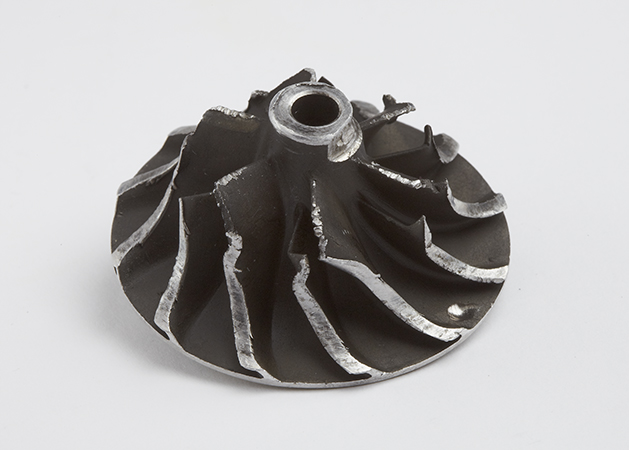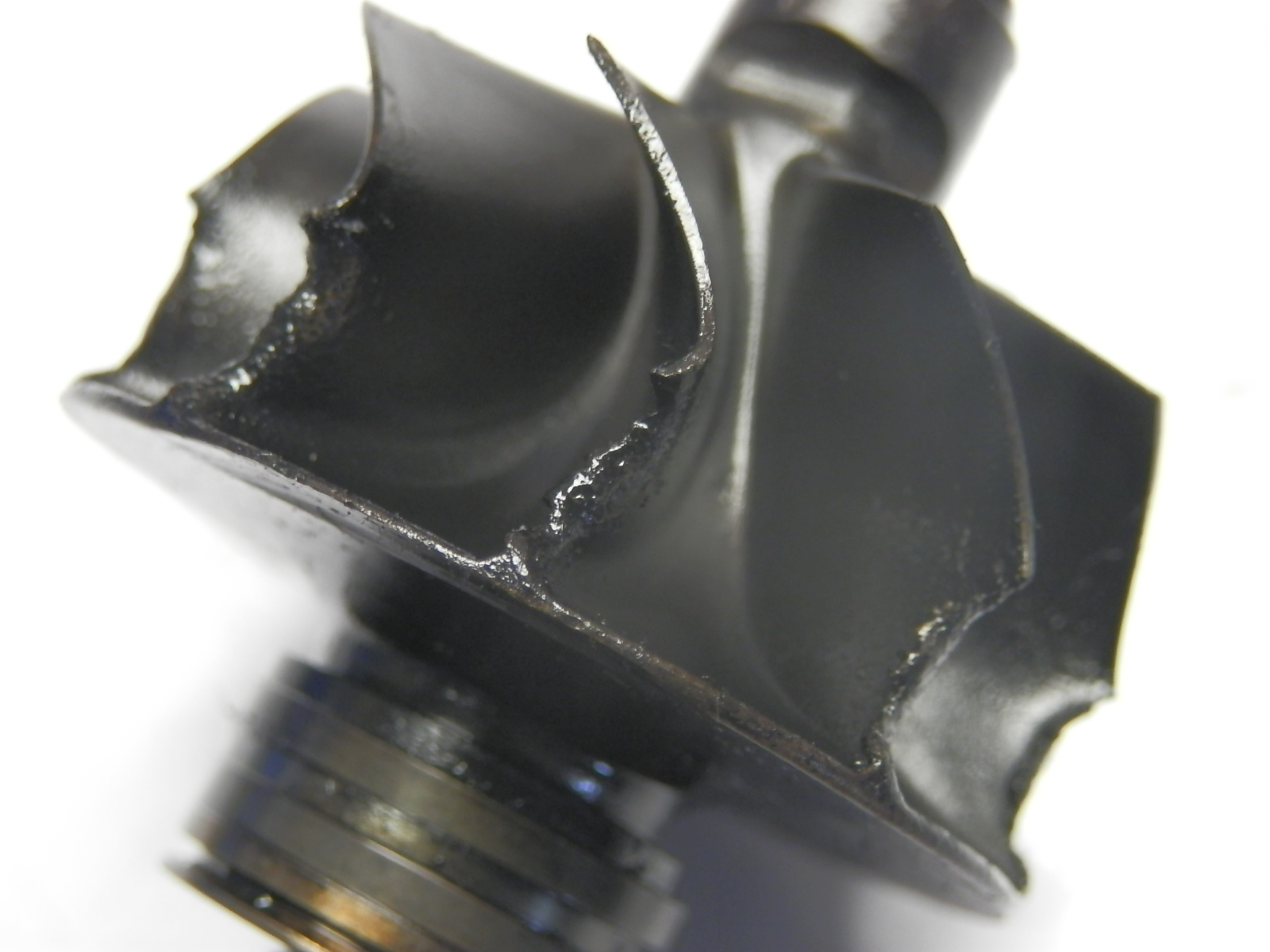Resource Highlights
In this article, you will find out about Turbo Failure Modes: Foreign Object Impact.
.tmb-1920w.jpg?Culture=en-GB&sfvrsn=68196ad4_2)
Turbo Failure Modes: Foreign Object Impact
The delicate assembly of precision components in a turbocharger are specifically designed to efficiently flow very high volumes of air. To do this, they must rotate at very high speeds; in a modern high-performance turbo, the turbine and compressor wheel assembly can rotate at up to 240,000rpm when in use – that’s 4,000 rotations every second!
At these speeds, even small components have a lot of inertia (stored energy ready to be released). Consequently, the contact of any dense particles (even non-metallic deposits such as carbon build up) into the internal workings of the turbocharger can cause immediate and total failure to the turbo. This is known as a Foreign Object Impact (FOI) failure.
Determining Foreign Object Impact

Commonly, FOI failure is categorised by the presence of damage to the compressor or turbine wheels, or their surrounding housings. A thorough visual inspection of the leading edge of each wheel should reveal a clean and consistent face, with a uniform gap between the housing. Any sign of damage here is a sure indication of Foreign Object Impact, and will require turbocharger replacement.
Consequences of Foreign Object Impact

In severe cases of FOI, it is common for the resulting explosion and fragmentation of internal components at very high speed to cause instantaneous and irreversible damage to the engine, as they are carried into the combustion chamber and the turbine housing. This will cause total engine failure and render a vehicle unfeasible for repair.
To protect against FOI related turbo failures, you can undertake some simple steps to minimize the risks on your customer’s vehicle:
- Always thoroughly inspect the air induction system. Any splits or gaps in pipework or housings can draw in unfiltered particles, bypassing the air filtration system and drawn directly into the turbocharger.
- Be sure to adhere to the manufacturer’s specifications of air filter elements, and always ensure that the filter is clean and fitted correctly. Every Delphi air filter is certified to match OE quality standards – why risk anything else?
- Only ever use OE quality gaskets, seals and fitting kits when replacing a turbo – never compromise with inferior products which are liable to break, fragment or not function correctly!
If You Discover Foreign Object Impact
If you are faced with a case of FOI turbocharger failure, it is absolutely critical that the entire air supply system is totally clean and free from any particles or objects which may cause further damage before fitting a replacement. Bear in mind that this will include, but is not limited to, the intercooler, EGR valve assembly and air supply pipework on both the high- and low-pressure sides of the turbo.
Be sure to adopt a methodical approach to removing and cleaning each and every component after a FOI related failure. If in any doubt, replace the entire air supply system, and explain to your customer why this is necessary. Ensuring right-first-time fitment and function by replacing such parts is far more cost and time-efficient than having to replace a second turbocharger on the same vehicle.
Additionally, the engine oil should be flushed and changed, along with the fitment of a replacement OE quality oil filter. The oil supply and return pipes and fittings should also be thoroughly inspected for evidence of foreign objects; look specifically for metallic fragments, and bear in mind that they may not necessarily be magnetic! This may also denote the need for removal and cleaning of the sump and oil pump.
SIGN UP TO FIND MORE
Fill yp your details to hear more from our experts and get the latest updates from Delphi.



